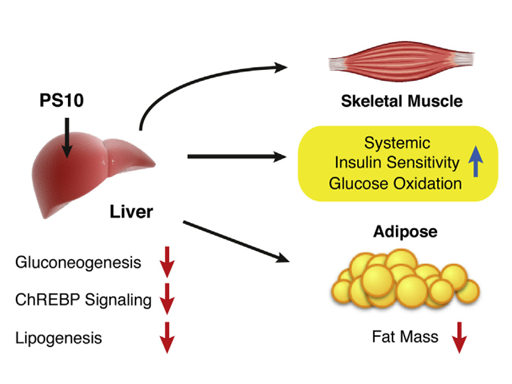Targeting hepatic pyruvate dehydrogenase kinases restores insulin signaling and mitigates ChREBP-mediated lipogenesis in diet-induced obese mice
Cheng-Yang Wu, Shih-Chia Tso, Jacinta L. Chuang, Wen-Jun Gui, Mingliang Lou, Gaurav Sharma, Chalermchai Khemtong, Xiangbing Qi, R. Max Wynn*, David T. Chuang*
The pyruvate dehydrogenase complex (PDC) is a key control point of energy Mitochondrial pyruvate dehydrogenase kinases 1e4 (PDKs1e4) negatively regulate activity of the pyruvate dehydrogenase complex (PDC) by reversible phosphorylation. PDKs play a pivotal role in maintaining energy homeostasis and contribute to metabolic flexibility by attenuating PDC activity in various mammalian tissues. Cumulative evidence has shown that the up-regulation of PDK4 expression is tightly associated with obesity and diabetes. In this investigation, we test the central hypothesis that PDKs1-4 are a pharmacological target for lowering glucose levels and restoring insulin sensitivity in obesity and type 2 diabetes (T2D).

